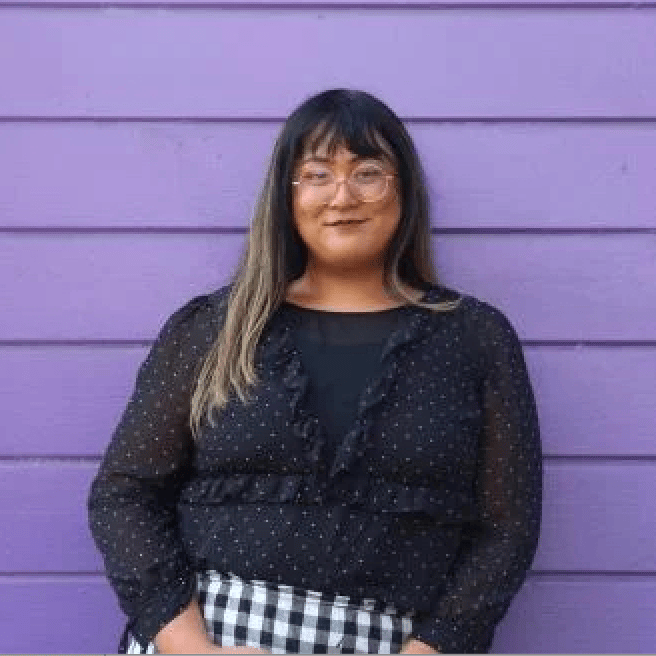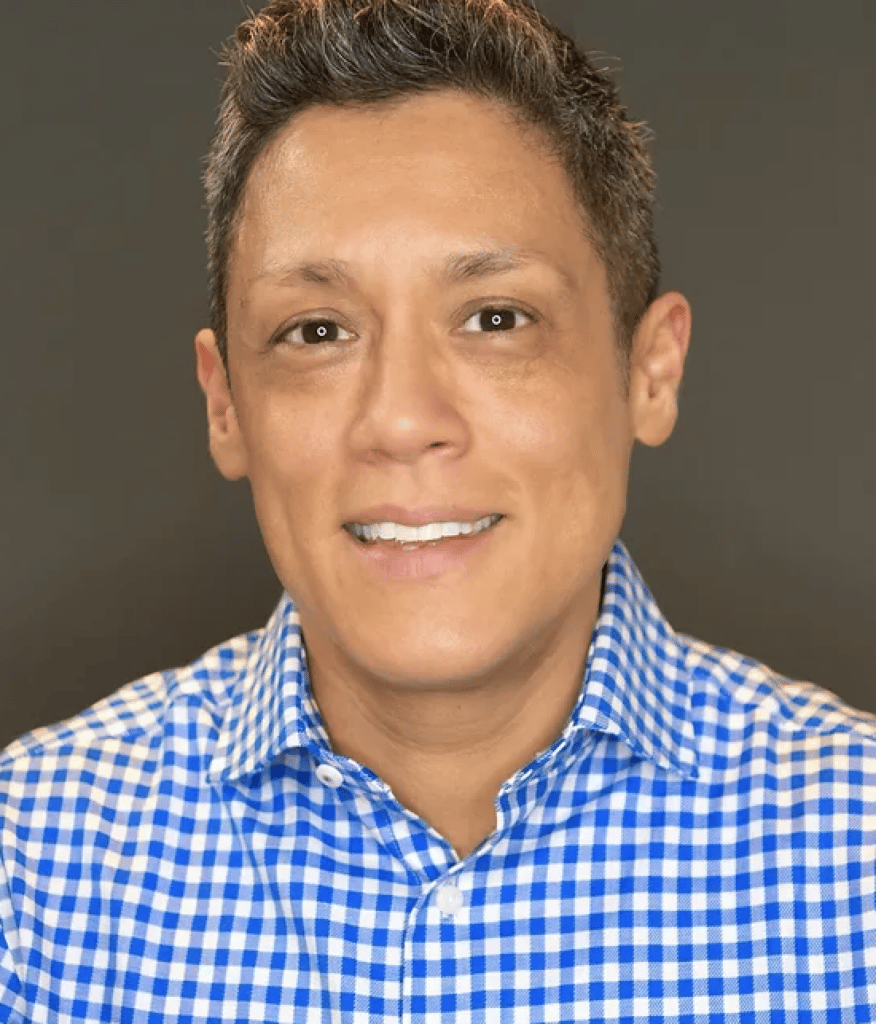
This historic San Francisco building, formerly a hotel, now provides housing for transgender residents in need. Photo: TODCO
By Taylor Heeden, Carolina Public Press
Homelessness among LGBTQ+ identifying people is far more prevalent than in other communities, with transgender and gender-nonconforming people unhoused at the highest rate in the community.
According to the Texas Homeless Network and the Trevor Project, one in three transgender people in the United States has experienced homelessness. In addition, 63 percent of transgender people and 80 percent of nonbinary people experiencing homelessness were unsheltered, with the Texas Homeless Network citing discrimination and societal stigmas around trans identity as a major factor in those rates.
Many cities and towns across the country are grappling with the current housing crisis, with homelessness rates on the rise and what feels like no sign of relief.
San Francisco has one of the highest homeless rates in the country, with 7,754 people reported to be unhoused—living in tents, cars, or other places not meant for human habitation—in 2022.
However, according to the 2022–2023 City Performance Report published this past July, the unhoused population has decreased by 15 percent since 2019. It also revealed homelessness itself decreased at a rate of three percent. What strategy was implemented to have this result?
Local Journalism for Working stiffs
We write for the poets, busboys, and bartenders. We cover workers, not ‘tech’, not the shiny ‘forbes 100 bullshit’. We write about the business on your corner and the beer in your hand. Join the Bay's best newsletter.
Specialized organizations and municipal entities were tailored to address the issue of homelessness in the local trans community, and they have come together to create a multifaceted approach to addressing housing solutions for trans San Franciscans.
Office of Transgender Initiatives and the work of advocacy organizations
The city established the Office of Transgender Initiatives (OTI) in 2017 to advance equity of transgender, gender-nonconforming and intersex (TGNCI) people in San Francisco. The office’s Manager of Communications Asri Wulandari just joined the office’s staff this year, using her position to “uplift and center the transgender community” in the city.
“Our office was formed in 2017, when then-Mayor Ed Lee and founding director Theresa Sparkscreated the Office of Transgender Initiatives to institutionalize a bridge between local government and trans, nonbinary, gender-nonconforming and intersex people in acknowledgment of the serious inequities this community faces,” she explained to Qnotes.
According to the San Francisco Youth Homeless Count And Survey of 2022, out of 1,073 youth who are homeless in 2022, four percent identify as transgender, and two percent identify as gender-nonconforming. Wulandari also noted TGNCI (transgender, gender-nonconforming and intersex) communities face high risk of homelessness because of factors such as family rejection, discrimination in employment and education, and barriers to gender-affirming health care.
OTI works to address these major issues from the perspective of policy, community engagement and education, and Wulandari said aiding unhoused gender-nonconforming people is one of the office’s top priorities.

Asri Wulandari of San Francisco’s Office of Transgender Initiatives confirms TGNCI communities face a higher risk of homelessness. Photo: SF Office of Trans Initiatives
“In tandem with the relatively high number of homeless TGNCI youth, we’ve also seen an uptick of violent threats received by community organizations that provide services to TGNCI youth,” Wulandari offered. “From this, we can see how the plight of homeless TGNCI youth is now exacerbated by the current political climate that targets them.”
One of the most crucial pieces of the OTI’s model is the Trans Advisory Committee (TAC), which is made up of community leaders representing TGNCI-focused community organizations across the city. TAC’s work focuses on budget and policy advocacy based on input from trans, gender-nonconforming and nonbinary residents and community members.
Among the organizations and groups represented in TAC is the Transgender District, a geographical area in San Francisco created to celebrate, support,and empower the transgender community. It was started by three Black transgender women in 2017 with a mission to preserve and protect the transgender cultural district in the Tenderloin neighborhood of San Francisco, concentrating on honoring and uplifting history, culture, and contributions of trans individuals.
Carlo Gomez Arteaga is the co-executive director of the Transgender District, which he said has helped to provide a safe space for trans, nonbinary and gender non-conforming people.
The mission of the Transgender District is to establish an urban space that nurtures the vibrant history, culture, legacy and empowerment of transgender individuals, deeply rooted in the southeastern Tenderloin neighborhood,” he explained. “It endeavors to stabilize and economically empower the transgender community through ownership of residences, enterprises, historical and cultural landmarks and the provision of safe communal areas.”
The Transgender District often collaborates with organizations and local leaders to enhance the quality of life for the San Francisco trans community, including its position with the TAC. As the political climate becomes more divisive, trans and gender-nonconforming folks have become a target of hateful rhetoric and threats of violence.
Arteaga said because of that, emphasizing the importance of safe spaces like the Transgender District are crucial to the safety of queer people.
“In San Francisco and beyond, the transgender community encounters disparities, notably in healthcare, economic stability, housing, and mental health,” he said.
“Addressing these issues requires anti-discrimination laws, inclusive healthcare policies, mental health support, housing initiatives and fighting systemic prejudice … Providing safe and inclusive spaces for the community is a priority.”
Our Trans Home SF
TAC and OTI has worked with several trans-issue centric nonprofits, among them Our Trans Home San Francisco (a product of collaboration between the two aforementioned organizations), St. James Infirmary and the SF LGBT Center.
“In recent years, due to advocacy efforts led by TAC, our office has spearheaded the genesis of initiatives such as the City’s commitment to End Trans Homelessness by 2027, the formation of the Our Trans Home programs and a guaranteed income pilot program for low-income TGNCI San Franciscans,” Wulandari said.

Carlo Gomez Arteaga, co-executive director of San Francisco’s Transgender District. Photo: Peer Advocates
The Our Trans Home SF program is currently run by St. James Infirmary and serves around 100 TGNCI low-income individuals through rental subsidies and the Bobbi Jean Baker House, a shelter where unhoused trans and gender non-conforming people can stay. According to the organization’s website, the Our Trans Home SF program is a “coalition working to address homelessness and housing instability impacting TGI people in the San Francisco Bay Area.”
St. James Infirmary was the parent organization of the Our Trans Home SF program and oversaw the day-to-day operations of the rental subsidy and the Bobbi Jean Baker House.
However, operations at Our Trans Home SF are changing, and fast.
“St. James announced last month that the organization is sunsetting within the next year, so we have been working with the relevant funding city departments to transfer OTH’s programming to other community organizations that are competent in providing direct services to TGNCI people,” Wulandari said.
Unfortunately, with the current model Our Trans Home SF uses, operations have slowed and will continue to as the program works to transition away from St. James Infirmary. With a lack of funds and the impending close of St. James, Our Trans Home SF is at full capacity and “will likely not be able to assist” additional applicants, at least not in the near future.
“The funds are incredibly limited, we absolutely cannot guarantee this assistance for anyone,” a spokesperson for Our Trans Home SF wrote in a press release. “If you do decide to apply anyway, please understand that we likely will not be able to offer any assistance for multiple months or potentially even until mid-2024 when we receive our next guaranteed round of funding.”
Community partnerships are key
A plan for Our Trans Home SF may not be finalized yet, but the organizations across San Francisco are working diligently to find stable housing solutions. OTI is working to find Our Trans Home SF a new parent organization or organizations, but until then, San Francisco will continue to utilize a community partnership model — one where multiple voices are brought into the conversation.
“We strive to collaborate with the TGNCI community of San Francisco as much as possible, and one of the ways we do so is through our efforts to center community voices and needs in all our policy and advocacy work,” Wulandari said. “San Francisco — thanks to Mayor Breed’s strong commitment to equity — has invested more City funds into TGNCI communities than any previous Mayor/administration.
“As a result, this city has a lot of supportive services and infrastructure laid out in order to support the LGBTQ+ homeless community.”
OTI’s existence itself is just one example of the infrastructure put in place to assist the San Francisco LGBTQ+ community. The city’s plan to support and help San Francisco’s unhoused trans population, titled “End Trans Homelessness by 2027” is the first such resolution in the country to commit to such a goal.
Arteaga shared a similar take on San Francisco’s approach to homelessness in the trans community. He said “innovative approaches” implemented by the municipal government to address the needs of the unhoused people citywide continue to help and will, hopefully, reach its goals.
“Homelessness is a challenge in most communities and throughout the world,” Arteaga stated. “Removing barriers to access is most helpful for unhoused communities, especially vulnerable communities.”
The recognition of the Transgender District and the establishment of OTI were parts of the “End Trans Homelessness by 2027” plan, but Wulandari said more needs to be done to reach the 2027 milestone.
“In order to prevent high rates of homelessness for TGNCI people [in] the future, we also need to change the conditions which lead to people becoming unhoused,” she explained. “Such as ensuring that TGNCI people have access to safe education and employment opportunities, addressing economic inequities, and creating a world that allows and encourages TGNCI people to thrive.”
Carolina Public Press is an independent, in-depth and investigative nonprofit news service for North Carolina.
The post How San Francisco is Addressing the Challenge of Trans Homelessness appeared first on Broke-Ass Stuart's Website.







